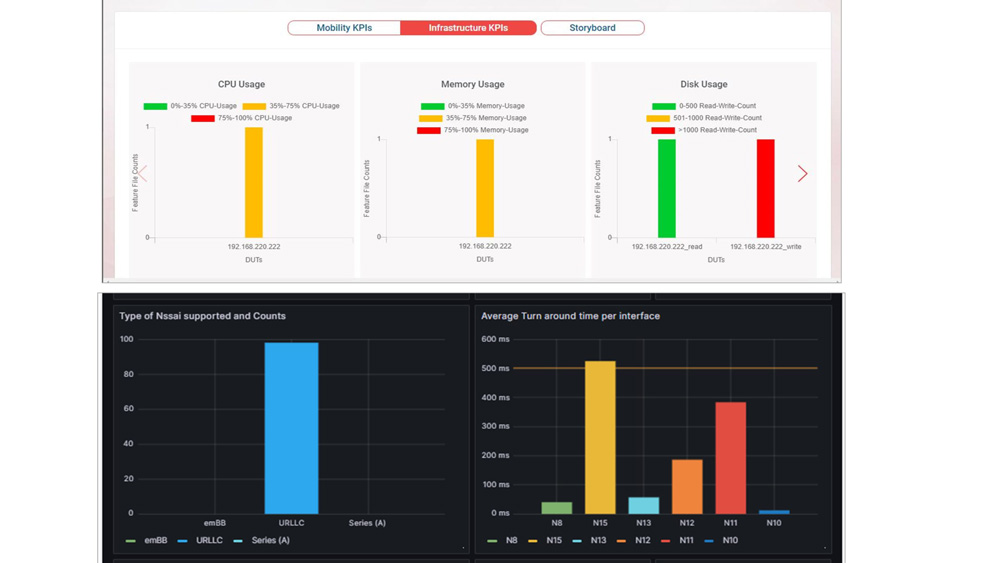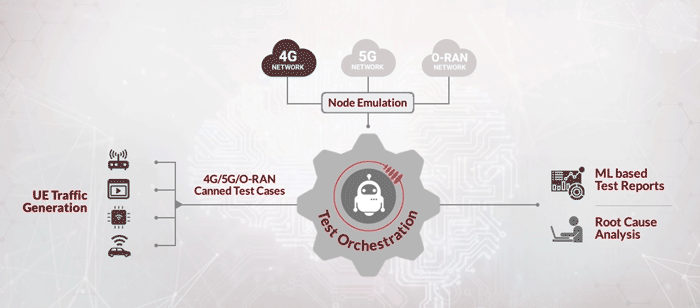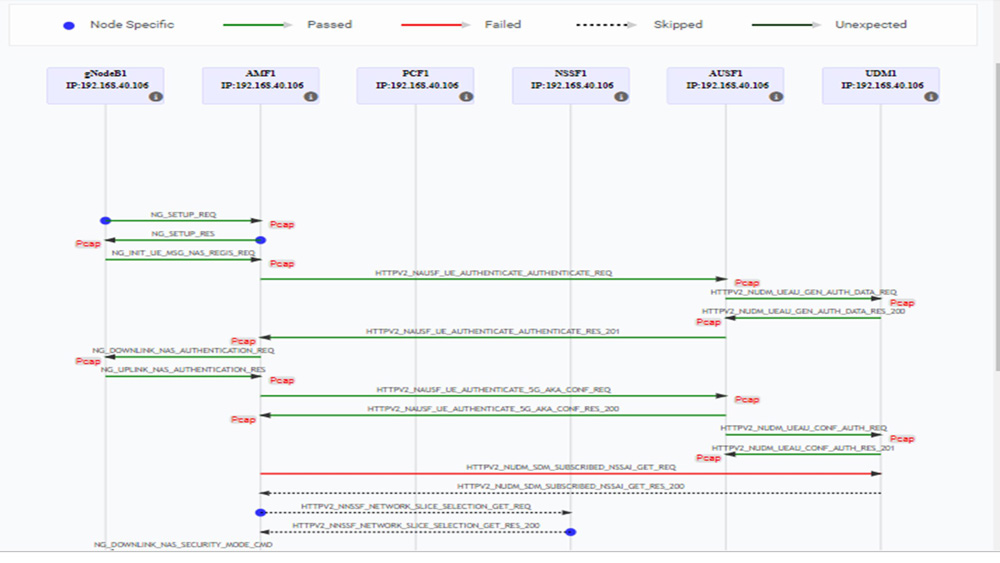-
What is Private 5G?

Private 5G networks are dedicated cellular networks, typically owned, and operated by a single organization to provide connectivity within a specific area. These networks utilize 5G technology to offer enhanced coverage, capacity, and performance compared to traditional Wi-Fi or wired networks. Unlike public cellular networks, private 5G networks cater to the needs and requirements of a single entity, offering greater control, customization, and security. Organizations can customize Private 5G networks according to their needs to support industry-specific use cases, prioritize critical applications, and ensure reliable connectivity for mission-critical operations. Private 5G networks find applications in various sectors such as manufacturing, logistics, healthcare, smart cities, etc. Some applications like factory robotics, autonomous and connected vehicles, and remote-controlled medical devices require reliability, low latency, and security.
-
Role of System Integrators
Major manufacturers consider the combination of private 5G and edge networks as a crucial technology to increase revenue and lower costs. However, architecting, implementing, and operating a successful 5G private network poses a significant challenge for many organizations. While some companies may have expertise in managing wired or Wi-Fi networks, they often lack experience in cellular technologies. Such organizations will need to collaborate with system integrators and managed service providers to bridge this knowledge gap and ensure a smooth transition into the realm of 5G. These partnerships will play a crucial role in supporting the organizations throughout the entire process, from initial setup to ongoing operation and maintenance of the private network.
SIs are expected to provide a turnkey solution in a rapid manner at a substantially lower cost. This can only be possible through automation and AI-based analytics to identify failure root causes. Moreover, SIs need ready-made easily customizable use-case-specific test scenarios to facilitate integration and deployment. Ensuring ongoing service assurance is equally essential. Tools need to be placed for monitoring the network, simulating various real-life conditions on the live deployment, and finally isolating and identifying problems.
-
How ABot can facilitate Private 5G deployments?
ABot enables validating, managing, and maintaining disaggregated virtualized network functions (NFs) for different deployment models and topologies. Its user-friendly, cloud-native test framework, can help meet the time and cost-constraint demands of private 5G networks. ABot works on both standalone (on-premises deployment) and hybrid models (combining on-prem and public networks). It offers readily available test suites, AI-ML-powered analytics, and a microservice-based architecture to facilitate rapid end-to-end system testing and analysis on different deployment configurations. It offers robust debugging and performance visualization capabilities.
- Deployment Test:
ABot can test different network topologies by simulating the missing NF both on VM and Cloud environment. The behavior of the network can be verified for different 3GPP use cases, load, and traffic conditions. Network slice-related test cases are supported by ABot to validate slice-specific QoS. ABot can simulate the components of the O-RAN split architecture and generate the KPM to validate xApps running on an RIC framework. Network attacks and threats can be simulated to verify network security. All these test scenarios are written in a very easy-to-use English-like script for easy understanding and modifications. An AI-driven SmartEditor is provided to facilitate test case authoring and creating different scenarios rapidly.
ABot KPI All the test execution results are analyzed using AI algorithms, with failures identified and root cause analysis (RCA) performed. Both NF and Infrastructure performance KPIs are captured for comprehensive analysis and decision-making. Recommendations are made and API hooks are provided to integrate AI models. ABot enables continuous test assurance through automation of testing, analysis, and report generation.
- Network Assurance Test:
Once the network is deployed in the field, a predetermined set of test cases can be used by the support & maintenance team to ensure the health of the system. These test cases can be used for ongoing network analysis and failure identification. The easy-to-use English-like test cases enable the support team to modify the test cases as necessary. Its cloud-native NF simulators can be deployed in various configurations, UEs can be simulated, synthetic
traffic can be generated, and KPIs analyzed to ensure network performance.
Some of the salient features of the ABot for testing in private 5G environments are:

- ABot comes with plug-and-play 3GPP compliant 5G/ORAN test cases written in English like DSL language, making it easy to use, understand and modify.
- Validates different 5G Core & RAN network elements with NGAP, PFCP, HTTP2, and GTPV2 Protocol stack support.
- Validates the F1/ E1 / E2 interfaces and test interoperability among different combinations of vendor’s RU/DU/CU. (O1/O2 support – implementation ongoing)
- Use the same cases for e2e functionality, performance, interoperability, and conformance capability validation of multi-vendor 5G/ORAN platform.
- Plethora of 3GPP complaint test coverage with QFI/SST-based testing under different load conditions.
- ABot comes with an AI-enabled Smart Editor for easy semi-automated test case writing; only domain knowledge is sufficient.
- It crafts a new test case with the help of a specifications-aware automated procedure graph GUI tool.
- Helps to choose the respective 3GPP messages, interfaces, IEs, and AVPs from drop-down menu choices.
- Real-time checking of test case grammar’s syntax.
- Assists in writing new 5G/ORAN test cases with easy-to-use “Given”, “when” & “then” grammar and no scripting.
- Smart Editor-generated test cases can be converted to third-party tool-compatible test scripts and executed by the respective tool, thus avoiding tool-specific test authoring knowledge.





